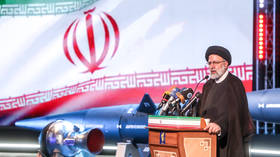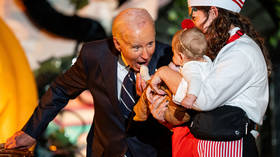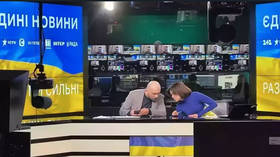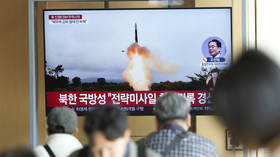Iran and US exchange prisoners

Authorities in Iran have released five American prisoners who are now en route to the US via Qatar, American officials told multiple media outlets on Monday. The US in turn set five jailed Iranians free and released $6 billion in frozen Iranian assets.
The prisoner exchange is the result of months of back-channel negotiations between Washington and Tehran, with the final agreement sweetened by the US instructing banks in Qatar and South Korea to unfreeze $6 billion in Iranian oil revenue.
US officials told the New York Times that the five Americans took off on a jet from Tehran on Monday morning. After arriving in Doha, they will be handed over to US authorities and flown back to Washington.
The five Americans included Siamak Namazi, Emad Shargi and Morad Tahbaz, who had been sentenced to ten years in prison on espionage charges. The other two detainees wished to remain anonymous, US officials said. Namazi, a 51-year-old businessman, was arrested in 2015 and excluded from prisoner swaps under both Barack Obama and Donald Trump’s administrations. Shargi and Tahbaz were both arrested in 2018.
Iran’s Nournews outlet confirmed the simultaneous release of five Iranians held in the US. Two of them arrived in Qatar on Monday and will travel onwards to Iran, while the other three chose to remain in the US.
Iranian Central Bank Governor Mohammadreza Farzin also confirmed that the $6 billion in frozen funds had reached Iranian banks.
The deal caused controversy in the US, with Republicans claiming that handing over the funds would encourage Tehran to capture more Americans for future deals. US Secretary of State Antony Blinken defended the deal by assuring reporters that restrictions would be placed on the $6 billion to ensure that it could only be spent on humanitarian supplies like food and medicine.
However, Iranian President Ebrahim Raisi declared last week that Tehran will spend the money as it sees fit. On Monday, Iranian foreign ministry spokesman Nasser Kanaani announced that “the government of Iran should have complete access to it, to use according to its need."
Tens of billions of dollars owed to Iran for oil and other exports were frozen in bank accounts around the world under US sanctions, after then President Donald Trump unilaterally withdrew from the Iran Nuclear Deal in 2018. The deal, known officially as the Joint Comprehensive Plan of Action (JCPOA), was signed in 2015 and offered Iran limited sanctions relief in exchange for a halt to its nuclear enrichment program.
US President Joe Biden has promised to revive the agreement, but has thus far failed to do so.












